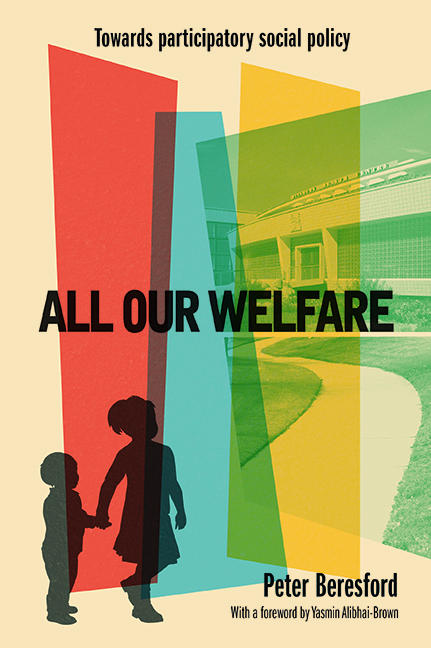Book contents
- Frontmatter
- Contents
- List of photographs and sources
- Foreword
- Dedication
- Acknowledgements
- Introduction Owning not othering our welfare
- Part One The legacy of the past
- Part Two The way to the future
- Afterword The future: a different way forward?
- Appendix One The family
- Appendix Two Research projects and related publications
- References
- Index
Afterword - The future: a different way forward?
Published online by Cambridge University Press: 01 September 2022
- Frontmatter
- Contents
- List of photographs and sources
- Foreword
- Dedication
- Acknowledgements
- Introduction Owning not othering our welfare
- Part One The legacy of the past
- Part Two The way to the future
- Afterword The future: a different way forward?
- Appendix One The family
- Appendix Two Research projects and related publications
- References
- Index
Summary
[The phone hacking] trial came to embody the peculiar values of this particular century – its materialism and the inequality that goes with it, the dominance of corporation over state.
(Nick Davies, Guardian, 2014)Poor dear Leslie – he has given his life for all of us – God grant that in the years to come, we may be worthy of his sacrifice – and may you all be given strength to bear your loss.
(Letter to the family of Able Seaman Leslie Norris from his schoolteacher following his death in action, 29 September 1944)Are you going to have greed for money or power ousting decency from the world as they have in the past, or are you going to make the world a different place?
(A Diary for Timothy, Jennings, 1945)The radical restructuring of UK social policy has made an impact on almost all of us. For some its effects have been extreme. Welfare reform has been associated with an upsurge in suicide (Blackburn, 2013). It has forced people to leave neighbourhoods in which they have lived for years, losing friends, networks and support services (BBC News, 2014). It has been linked with ‘hate crime’ against disabled people stigmatised by high profile government and media ‘anti-scrounger’ campaigns (Walker, 2012). Between 2010 and 2014, the number of prescriptions for anti-depressants increased by 25% (O’Hara, 2014b). Yet it is difficult, amid all these difficulties, not to detect some degree of complacency in social policy academic writings. These have shown a reluctance to take on the bold new ideas and arguments developed by welfare user movements. A strong sense of Fabian ‘business as usual’ lingers. For example, in 2014, in the latest edition of what’s described as a ‘best-selling social policy textbook’, the academic Professor Paul Spicker concludes that: ‘People who are poor, disabled, mentally ill or unemployed cannot be expected to overcome the problems they face simply because they have more effective control over services’ (Spicker, 2014, 351)
He goes on to make the much wider point:
It is important, too, not to overestimate the potential effects of this kind of procedure. Dwyer (2004, 59–60) lists some of the chief objections to user-based approaches.
- Type
- Chapter
- Information
- All our WelfareTowards Participatory Social Policy, pp. 355 - 366Publisher: Bristol University PressPrint publication year: 2016



